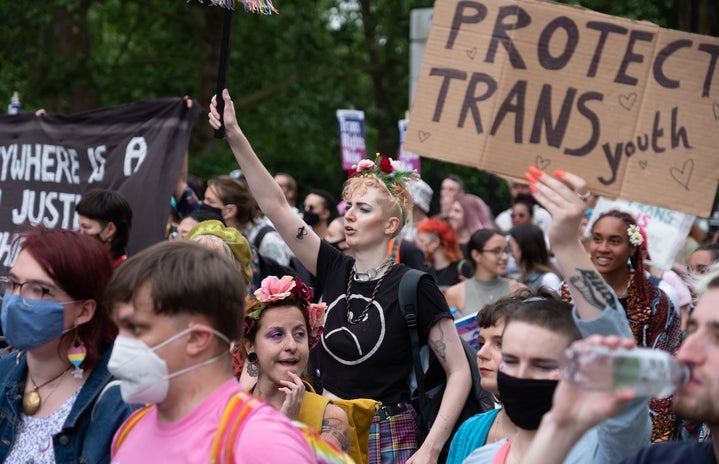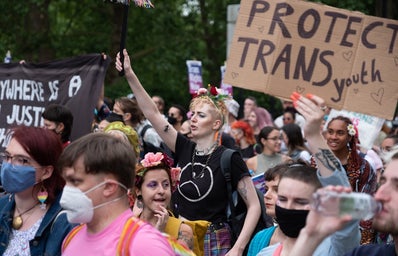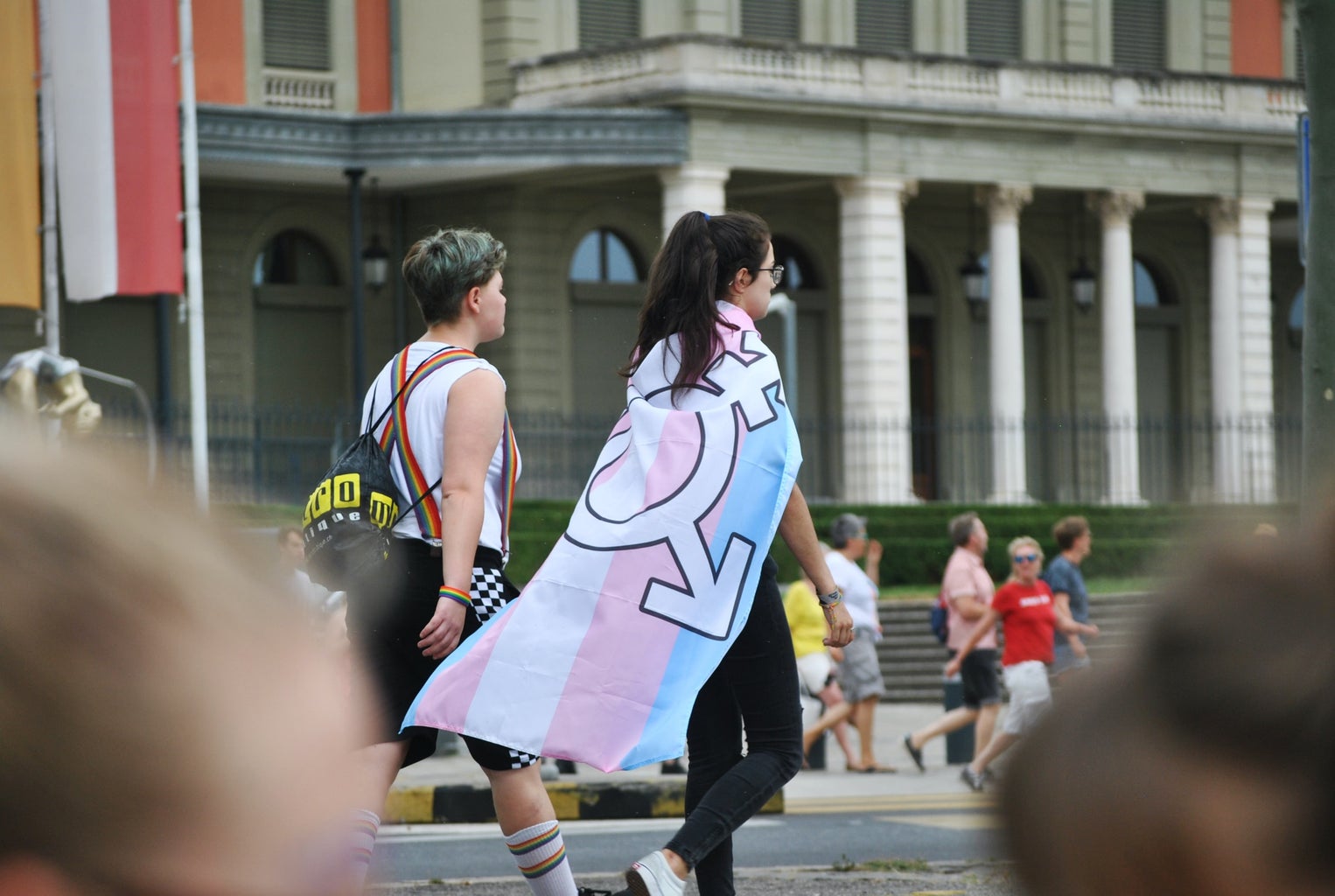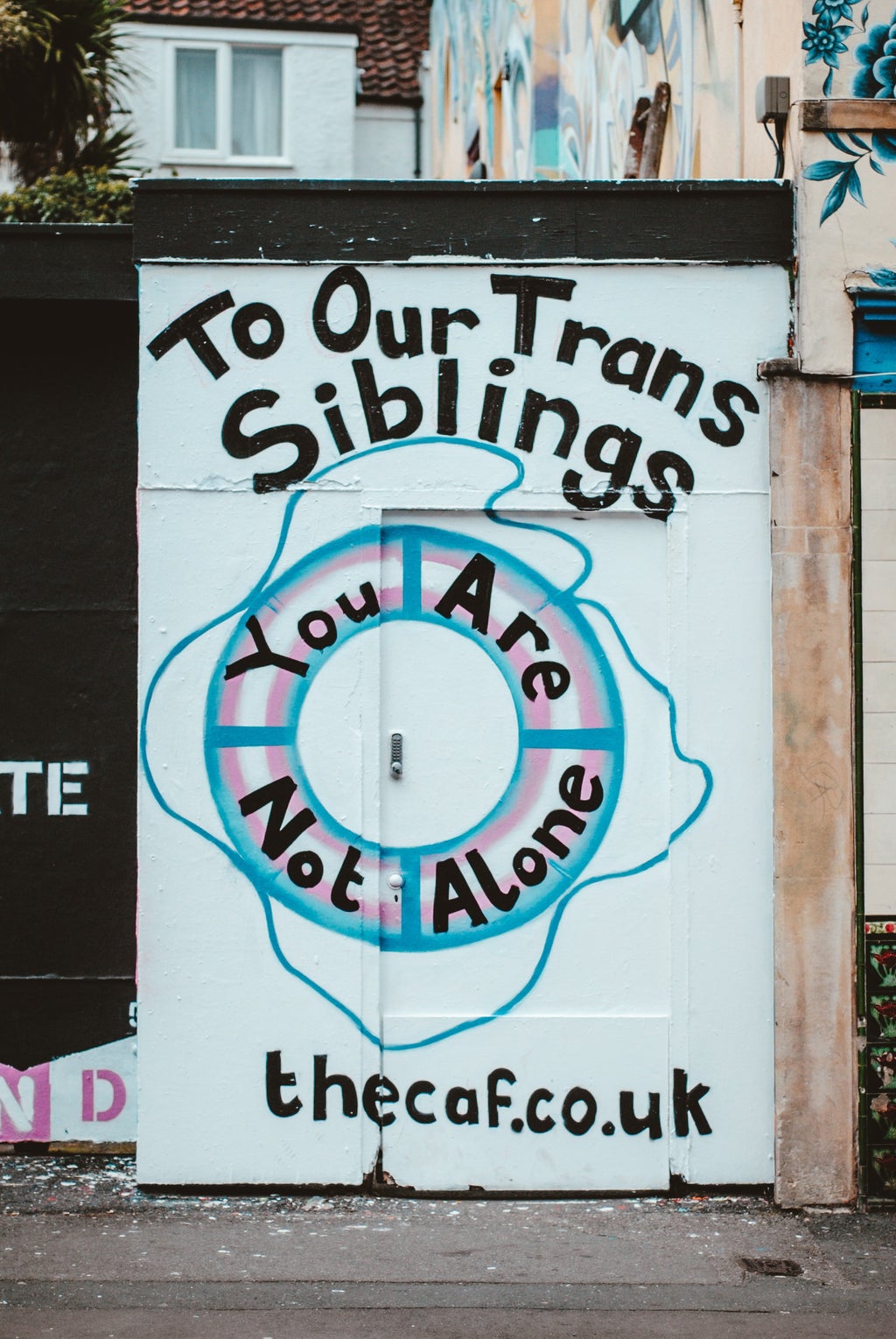In March, Tennessee governor Bill Lee signed a bill into law that made engaging in an “adult cabaret performance … in a location where the adult cabaret performance could be viewed by a person who is not an adult” an offense punishable by a Class A misdemeanor or a felony. While drag performances are not explicitly mentioned in the bill, the law is yet another blatant example of legislation aimed at censoring queer expression, poorly disguised as “protecting children.” For trans people in particular, the potential implications of the law are concerning. As we wait to see what comes of the law, which is set to go into effect in July, here are three ways to support your local queer community from New York City.
1. Support Local Drag
New York City is no stranger to drag performances, but they could always use a bit more love.
C’mon Everybody is a queer owned and operated bar, live music venue, and performance space located in Bedstuy, Brooklyn. Founded in 2015, the space was “born out of a desire to amplify the underserved creative voices of LGBTQ/QTPOC people.” They have events most nights of the week, and costs are usually under $15 (and many events are free!). Every first and third Wednesday of the month at 8 p.m., you can stop by to see their “MEGA Drag Show,” a drag residency starring queens Milk and Olivia Lux — tickets are just $5 at the door!
When Lucky Cheng’s Drag Cabaret opened in 1993, it was the first Chinese restaurant and bar to boast a staff of entirely Asian drag queens and transgender women. In the decades since, the staff has diversified and the establishment has gained fame from its many celebrity guests; in fact, “Orange is the New Black”’s Laverne Cox used to work there, as did several performers who went on to star on “RuPaul’s Drag Race”! They now offer weekend brunch services and themed dinners; just be sure to book a reservation in advance, because Lucky Cheng’s is no longer the underground venue it used to be.
Drag Story Hour NYC is a member of the Drag Queen Story Hour Global Network, offering storytelling and creative arts programs for children and teens in New York City! Their events take place at schools and public libraries, as well as virtually. They are always welcoming donations to support their work, and you can volunteer to help with physical or virtual events, as well as social media campaigns. Check out their “Get Involved” page for the most up-to-date information on the type of support they desire.
2. Check on your queer friends and neighbors.
Ask your queer friends and neighbors what kind of support would be most beneficial to them.
Support mutual aid networks and community organizations benefiting queer and trans people, especially Black and Indigenous folks.
WSP Mutual Aid offers weekly mutual aid support in Washington Square Park every Friday from 5-8pm. They post weekly roundups of the most requested/needed items on their Instagram, as well as frequent updates on community events and initiatives. Founded by trans activist Qween Jean, Black Trans Liberation is a community organization empowering and celebrating trans and gender nonconforming people in NYC; you can donate to their work here. Black Women Exhale is a mutual aid network centering Black, queer and/or trans people; even if you can’t send funds to any of the mutual aid requests, you can always share requests with your peers and networks in case someone you know is able to.
There are many ways to support the community even if you cannot offer monetary support. Offer to walk your trans friends home. Send a care package or bring them a warm meal. Offer a hug. Let them know that you are here if and when they need you to be.
3. Educate yourself and amplify queer voices.
Learn more about the experiences of LGBTQ+ individuals by listening to what they have to say.
You’re probably scrolling through TikTok and Instagram regularly anyway, so follow more queer and trans creators and listen to their experiences and concerns. Sarah Kate Smigiel (@justsaysk), Joela-Abiona Rivera (@missabolition), and James Rose (@jamesissmiling) are some great, lesser known creators to keep up with. Though they’re a bit more popular, Elle Deran (@elle.deran) and Schuyler Bailar (@pinkmantaray) are other educational trans creators. You can also stop by the LGBTQ+ Center in Kimmel (6th Floor) and check out their programming.
Talk to your friends and family who may not be educated about these issues. Big changes have to start small — share your knowledge with your community and encourage them to continue learning on their own time.
We may not be certain what will happen in the coming weeks or months or years, but we can be certain that we will continue to support our queer community, near and far. Support is a verb, and it is essential that we tangibly stand with the most marginalized among us.
And to my queer and trans siblings: Queer existence is necessary and magical. We have always existed, and we always will. You are seen. You are loved. May your light never be snuffed out.




